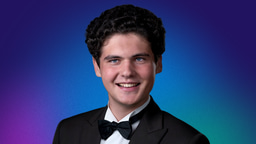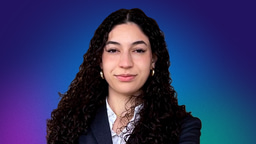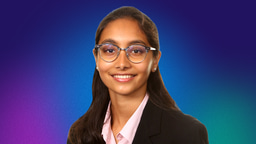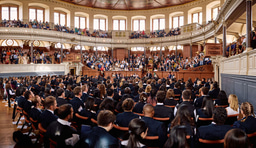Curiosity in Leadership: How Celia Irving Embraces the Unknown to Drive Her Research

Curiosity in Leadership: How Celia Irving Embraces the Unknown to Drive Her Research

Curiosity is often the spark that ignites groundbreaking discoveries, but for @Celia Irving, a Laidlaw Scholar at the University of St Andrews, it’s much more than that—it’s the driving force behind her entire approach to research. As we explore the theme “Curiosity: Beyond Assumptions, Towards Understanding” leading up to the Laidlaw Scholars Conference 2024, Celia's reflections show how curiosity can lead scholars to explore new ideas and embrace uncertainty.
For Celia, curiosity is especially crucial in the field of history, a discipline that can sometimes be dismissed as lacking “practicality.” Yet, it’s precisely this curiosity that keeps historical inquiries alive. “Curiosity is the driver behind my research and work,” she explains, noting that it’s a common motivator for students, academics, and enthusiasts in the field of history.
Curiosity as the Starting Point
Celia’s research journey began not with a clear-cut question, but with a deep curiosity that pushed her to explore the unknown. “During my first meeting with my supervisor, before I had a concrete idea for my project, it was curiosity and a passion for theatre history that made me wonder how these wildly different forms of communication—often promoting the same millenarian ideals—have historically intersected and influenced one another.”
She had no idea whether there was any substantial connection between the performing arts and Esperanto, an artificial language, but that didn’t stop her. It was her curiosity that urged her to investigate further and uncover answers, despite the uncertainty of the outcome. This willingness to venture into unexplored territory is what sets Celia’s research—and her leadership approach—apart.
Curiosity as a Leadership Tool
Celia’s journey highlights the importance of curiosity in leadership, not just in research. Leadership often involves navigating the unknown, and curiosity is what allows leaders to take bold steps forward without needing all the answers upfront. Rather than being paralyzed by the unfamiliar, Celia sees curiosity as a tool for progress—one that encourages exploration, learning, and ultimately, discovery.
“I had no idea whether there was any substantial connection between the performing arts and Esperanto, but it was curiosity that compelled me to uncover answers regardless,” Celia says. Her work is a testament to the power of curiosity to fuel both inquiry and leadership, demonstrating that asking questions—even when you don’t know where they’ll lead—can result in unexpected and valuable discoveries.
Curiosity Beyond Assumptions
Celia’s experience is a reminder of how curiosity allows us to go beyond assumptions and challenge the status quo. It encourages scholars and leaders alike to look at the world with fresh eyes, ask questions that haven’t been asked before, and pursue understanding in areas where others may not even think to look. For Celia, curiosity opened the door to exploring an unconventional intersection between theatre and language, proving that even the most unlikely connections can lead to rich, meaningful insights.
As we approach the Laidlaw Scholars Conference 2024, Celia’s story reminds us that curiosity is not just about asking questions—it’s about having the courage to explore the unknown and pursue answers. It’s a driving force that shapes both research and leadership, encouraging us all to go beyond assumptions and discover new ways to understand the world around us.







Please sign in
If you are a registered user on Laidlaw Scholars Network, please sign in